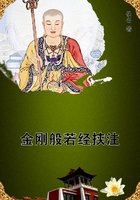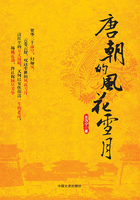Such are the irrational characteristics of myths, classic or Indian, European or American, African or Asiatic, Australian or Maori. Such is one element we find all the world over among civilised and savage people, quod semper, quod ubique, quod ab omnibus. It is no wonder that pious and reflective men have, in so many ages and in so many ways, tried to account to themselves for their possession of beliefs closely connected with religion which yet seemed ruinous to religion and morality.
The explanations which men have given of their own sacred stories, the apologies for their own gods which they have been constrained to offer to themselves, were the earliest babblings of a science of mythology. That science was, in its dim beginnings, intended to satisfy a moral need. Man found that his gods, when mythically envisaged, were not made in his own moral image at its best, but in the image sometimes of the beasts, sometimes of his own moral nature at its very worst: in the likeness of robbers, wizards, sorcerers, and adulterers. Now, it is impossible here to examine minutely all systems of mythological interpretation. Every key has been tried in this difficult lock; every cause of confusion has been taken up and tested, deemed adequate, and finally rejected or assigned a subordinate place. Probably the first attempts to shake off the burden of religious horror at mythical impiety were made by way of silent omission. Thus most of the foulest myths of early India are absent, and presumably were left out, in the Rig-Veda.
"The religious sentiment of the hymns, already so elevated, has discarded most of the tales which offended it, but has not succeeded in discarding them all." Just as the poets of the Rig-Veda prefer to avoid the more offensive traditions about Indra and Tvashtri, so Homer succeeds in avoiding the more grotesque and puerile tales about his own gods. The period of actual apology comes later. Pindar declines, as we have seen, to accuse a god of cannibalism. The Satapatha Brahmana invents a new story about the slaying of Visvarupa. Not Indra, but Trita, says the Brahmana apologetically, slew the three-headed son of Tvashtri. "Indra assuredly was free from that sin, for he is a god," says the Indian apologist. Yet sins which to us appear far more monstrous than the peccadillo of killing a three-headed Brahman are attributed freely to Indra.
Les Religions de l'Inde, Barth, p. 14. See also postea, "Indian Myths".
The reasons for Homer's reticence are probably different in different passages. Perhaps in some cases he had heard a purer version of myth than what reached Hesiod; perhaps he sometimes purposely (like Pindar) purified a myth; usually he must have selected, in conformity with the noble humanity and purity of his taste, the tales that best conformed to his ideal. He makes his deities reluctant to drag out in dispute old scandals of their early unheroic adventures, some of which, however, he gives, as the kicking of Hephaestus out of heaven, and the imprisonment of Ares in a vessel of bronze. Compare Professor Jebb's Homer, p. 83:
"whatever the instinct of the great artist has tolerated, at least it has purged these things away." that is, divine amours in bestial form.
Satapatha Brahmana, Oxford, 1882, vol. i. p. 47.
While poets could but omit a blasphemous tale or sketch an apology in passing, it became the business of philosophers and of antiquarian writers deliberately to "whitewash" the gods of popular religion. Systematic explanations of the sacred stories, whether as preserved in poetry or as told by priests, had to be provided.
India had her etymological and her legendary school of mythology.
Thus, while the hymn SEEMED to tell how the Maruts were gods, "born together with the spotted deer," the etymological interpreters explained that the word for deer only meant the many-coloured lines of clouds. In the armoury of apologetics etymology has been the most serviceable weapon. It is easy to see that by aid of etymology the most repulsive legend may be compelled to yield a pure or harmless sense, and may be explained as an innocent blunder, caused by mere verbal misunderstanding. Brahmans, Greeks, and Germans have equally found comfort in this hypothesis. In the Cratylus of Plato, Socrates speaks of the notion of explaining myths by etymological guesses at the meaning of divine names as "a philosophy which came to him all in an instant". Thus we find Socrates shocked by the irreverence which styled Zeus the son of Cronus, "who is a proverb for stupidity". But on examining philologically the name Kronos, Socrates decides that it must really mean Koros, "not in the sense of a youth, but signifying the pure and garnished mind". Therefore, when people first called Zeus the son of Cronus, they meant nothing irreverent, but only that Zeus is the child of the pure mind or pure reason. Not only is this etymological system most pious and consolatory, but it is, as Socrates adds, of universal application.
"For now I bethink me of a very new and ingenious notion, . . . that we may put in and pull out letters at pleasure, and alter the accents."
Rig-Veda Sanhita. Max Muller, p. 59.
Postea, "Indian Divine Myths".
Jowett's Plato, vol. i. pp. 632, 670.
Socrates, of course, speaks more than half in irony, but there is a certain truth in his account of etymological analysis and its dependence on individual tastes and preconceived theory.















